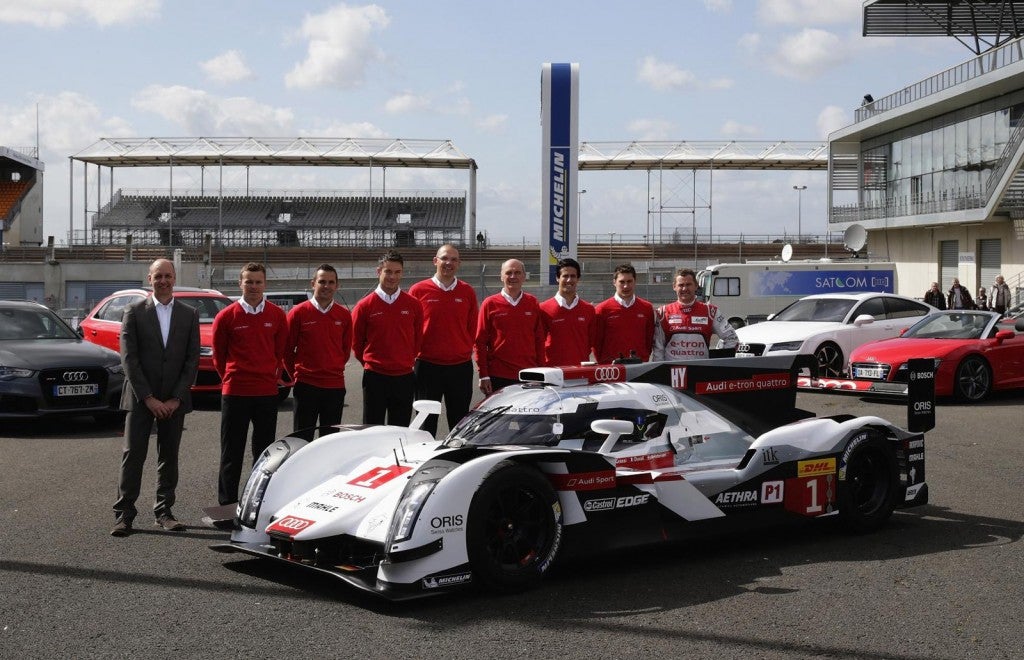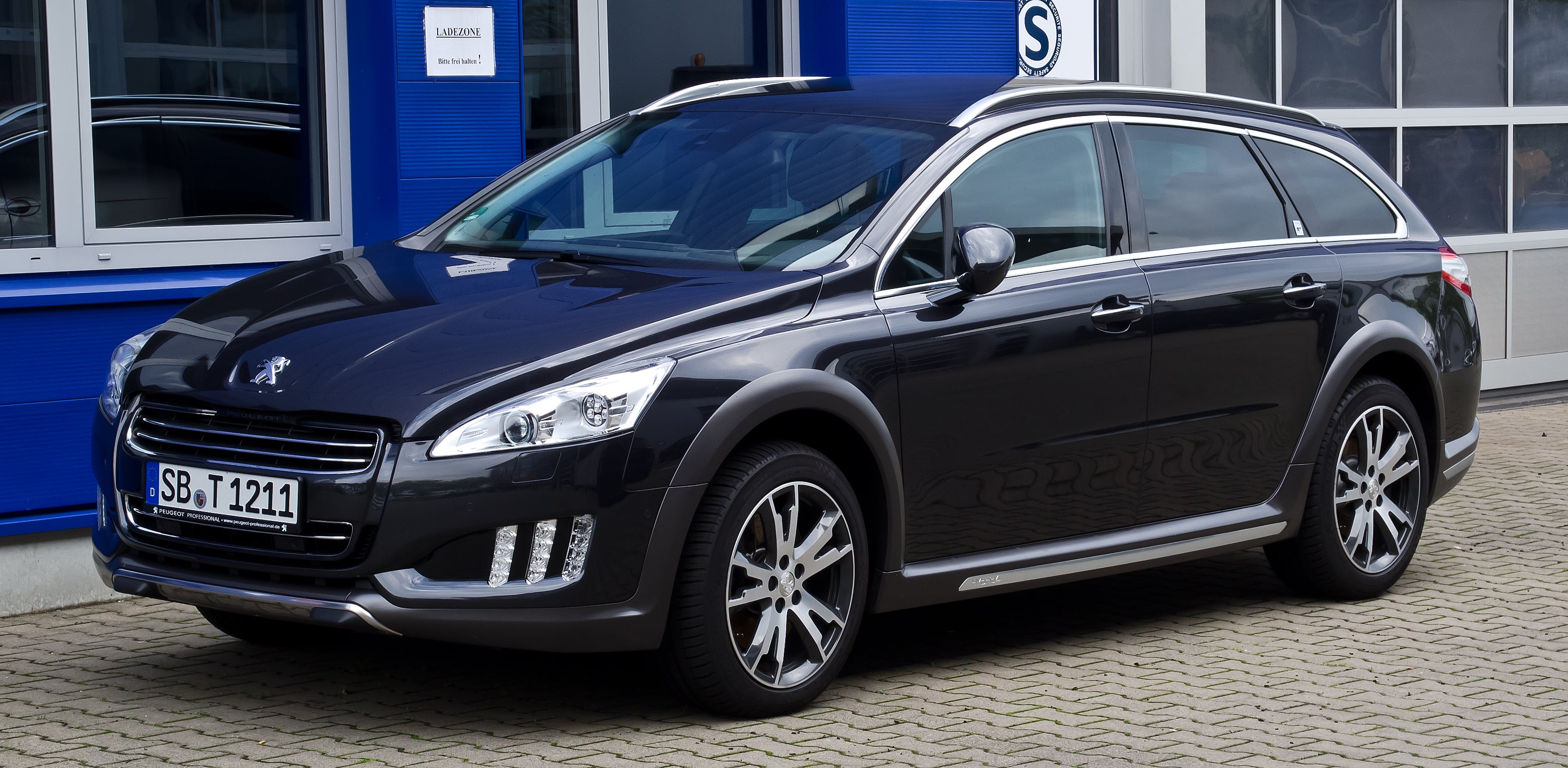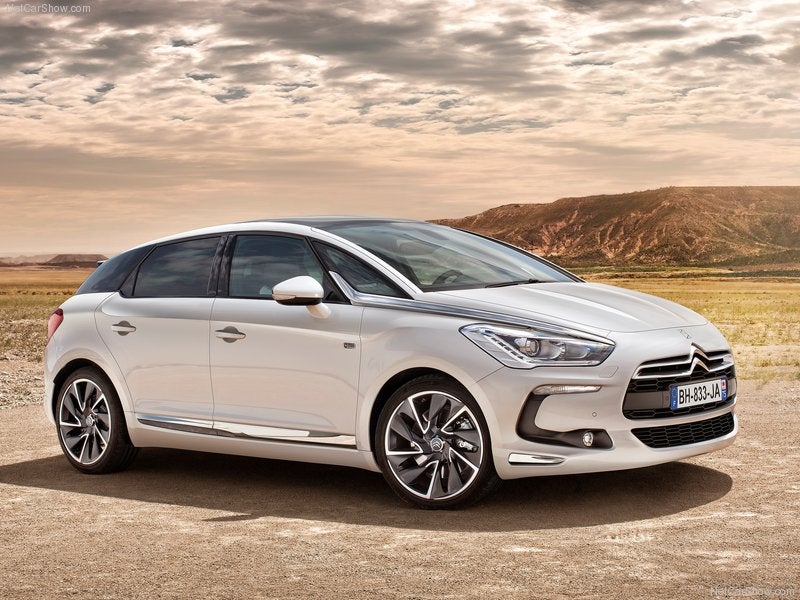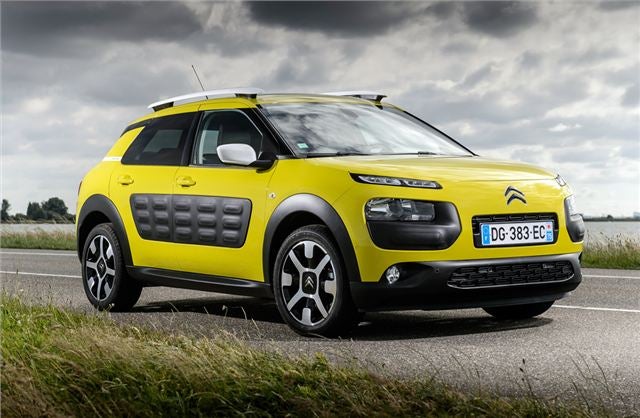 "Mr. Ontop, No Strokes, No Smokes...Goes Fast." (twostrokesmoke)
"Mr. Ontop, No Strokes, No Smokes...Goes Fast." (twostrokesmoke)
07/01/2014 at 13:12 • Filed to: None
 2
2
 17
17
 "Mr. Ontop, No Strokes, No Smokes...Goes Fast." (twostrokesmoke)
"Mr. Ontop, No Strokes, No Smokes...Goes Fast." (twostrokesmoke)
07/01/2014 at 13:12 • Filed to: None |  2 2
|  17 17 |
I'm just wondering if anyone here could shed some light on this for me. If hybrids are supposed to be all about being efficient and extending range etc...why aren't there any diesel hybrids? seems like that would be the way to go....Or am I missing something?

Have a green Stig for your problems.
 For Sweden
> Mr. Ontop, No Strokes, No Smokes...Goes Fast.
For Sweden
> Mr. Ontop, No Strokes, No Smokes...Goes Fast.
07/01/2014 at 13:14 |
|

Because particulate emissions regulations and noise.
But people are working on it !
 Arch Duke Maxyenko, Shit Talk Extraordinaire
> Mr. Ontop, No Strokes, No Smokes...Goes Fast.
Arch Duke Maxyenko, Shit Talk Extraordinaire
> Mr. Ontop, No Strokes, No Smokes...Goes Fast.
07/01/2014 at 13:15 |
|

 PS9
> Mr. Ontop, No Strokes, No Smokes...Goes Fast.
PS9
> Mr. Ontop, No Strokes, No Smokes...Goes Fast.
07/01/2014 at 13:20 |
|

There are some, just not in the U.S. This one can will go 100km on 4L, which is about 62MPG.
 PS9
> Arch Duke Maxyenko, Shit Talk Extraordinaire
PS9
> Arch Duke Maxyenko, Shit Talk Extraordinaire
07/01/2014 at 13:20 |
|
But no one can buy that!
 Mr. Ontop, No Strokes, No Smokes...Goes Fast.
> For Sweden
Mr. Ontop, No Strokes, No Smokes...Goes Fast.
> For Sweden
07/01/2014 at 13:22 |
|
So what is different in a hybrid engine vs a regular diesel?
 HammerheadFistpunch
> Mr. Ontop, No Strokes, No Smokes...Goes Fast.
HammerheadFistpunch
> Mr. Ontop, No Strokes, No Smokes...Goes Fast.
07/01/2014 at 13:23 |
|
Cost mostly; Diesels are expensive, so are hybrids. Not to mention NVH issues
 KirkyV
> Mr. Ontop, No Strokes, No Smokes...Goes Fast.
KirkyV
> Mr. Ontop, No Strokes, No Smokes...Goes Fast.
07/01/2014 at 13:23 |
|


http://www.citroen.co.uk/new-cars/ds-ra…
There are. I imagine their relative rarity is largely a consequence of diesel's reputation in the US market. Hybrids, so far as I can tell, have always done a fair bit better there than in most European countries - I suppose because Europeans have generally been more likely to opt for conventional turbodiesels, though I believe this is changing - and so most hybrid cars have been developed with the US market in mind.
Of course, there could be some significant engineering challenges that I'm unaware of.
 For Sweden
> Mr. Ontop, No Strokes, No Smokes...Goes Fast.
For Sweden
> Mr. Ontop, No Strokes, No Smokes...Goes Fast.
07/01/2014 at 13:23 |
|
One has batteries and the other runs on oil
 Mr. Ontop, No Strokes, No Smokes...Goes Fast.
> For Sweden
Mr. Ontop, No Strokes, No Smokes...Goes Fast.
> For Sweden
07/01/2014 at 13:35 |
|
Okay, a better way to put it is, is there a difference in the engines in a hybrid set up vs ICE engines....smartass.
 Mr. Ontop, No Strokes, No Smokes...Goes Fast.
> KirkyV
Mr. Ontop, No Strokes, No Smokes...Goes Fast.
> KirkyV
07/01/2014 at 13:37 |
|
That's not an ugly car. Too bad Citroen left our shores long ago.....
 The Ghost of Oppo
> Mr. Ontop, No Strokes, No Smokes...Goes Fast.
The Ghost of Oppo
> Mr. Ontop, No Strokes, No Smokes...Goes Fast.
07/01/2014 at 13:39 |
|
Two possible problems:
1. Packaging everything. Fitting all the components that go along with the hybrid drivetrain, and then the Diesel exhaust fluid tank. Finding space for an additional 6 gallon tank is hard enough without all the batteries.
2. Diesels are more expensive than gas engines. Look at the Jetta, the 1.8T SE is $18.9, the equivalent TDI is $23.6, then the Hybrid SE with a 1.4T gas is $27.6. Think about how much it would cost with a 2.0TDI in there
 M54B30
> Mr. Ontop, No Strokes, No Smokes...Goes Fast.
M54B30
> Mr. Ontop, No Strokes, No Smokes...Goes Fast.
07/01/2014 at 13:39 |
|
I always thought it was because diesels are harder than gasoline for stop-start cycles and the frequent starting that is inherent in a hybrid
 For Sweden
> Mr. Ontop, No Strokes, No Smokes...Goes Fast.
For Sweden
> Mr. Ontop, No Strokes, No Smokes...Goes Fast.
07/01/2014 at 13:42 |
|
Someone else said it, but diesels are expensive, hybrids are expensive, and diesel hybrids are expensive^2. Hybrids were already too expensive when they came out. We'll likely see mainstream diesel hybrids eventually.
 KirkyV
> Mr. Ontop, No Strokes, No Smokes...Goes Fast.
KirkyV
> Mr. Ontop, No Strokes, No Smokes...Goes Fast.
07/01/2014 at 13:43 |
|

Indeed. I'm thinking of getting a slightly older Citroen as my next car, and their latest, the new C4 Cactus, is proving something of a hit with reviewers. It's the size of a Focus, but weighs less than a Fiesta.
http://www.honestjohn.co.uk/carbycar/citro…
 Fezzasus
> Mr. Ontop, No Strokes, No Smokes...Goes Fast.
Fezzasus
> Mr. Ontop, No Strokes, No Smokes...Goes Fast.
07/01/2014 at 13:51 |
|
Honestly. Cost and weight.
A diesel tends to be more expensive to produce, which usually translates to a higher list price and resale, and they tend to be heavier, this is partly because a diesel engine with low mass will absorb the energy of combustion rather than turn it into usable energy. Both this means that (for now) it's only economic to pick either hybrid or diesel, not both.
It can clearly be done, audi R18 ect.
 wkiernan
> Mr. Ontop, No Strokes, No Smokes...Goes Fast.
wkiernan
> Mr. Ontop, No Strokes, No Smokes...Goes Fast.
07/01/2014 at 15:58 |
|
The ICE engine in Toyota and Ford hybrids is an Atkinson cycle engine, which gives better fuel efficiency than a conventional Otto cycle engine at the cost of limited torque at low RPMs; you can see how this meshes well with the high torque at all RPMs of an electric motor. So the higher thermal efficiency of the Atkinson cycle engine undermines one of the main advantages of the Diesel, which is better fuel economy, and the fact that electric motors provide such good low-RPM torque takes away another Diesel advantage, that one being its high torque.
 Mr. Ontop, No Strokes, No Smokes...Goes Fast.
> wkiernan
Mr. Ontop, No Strokes, No Smokes...Goes Fast.
> wkiernan
07/01/2014 at 16:12 |
|
DING! DING! DING! Best answer yet!